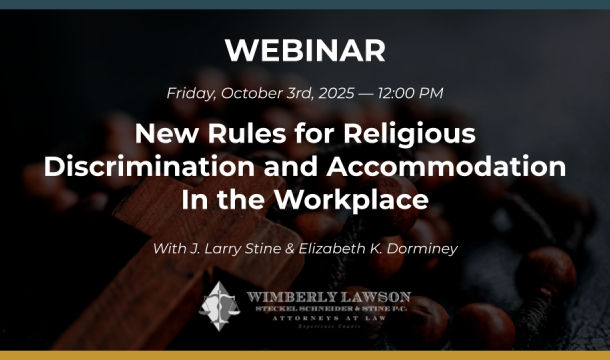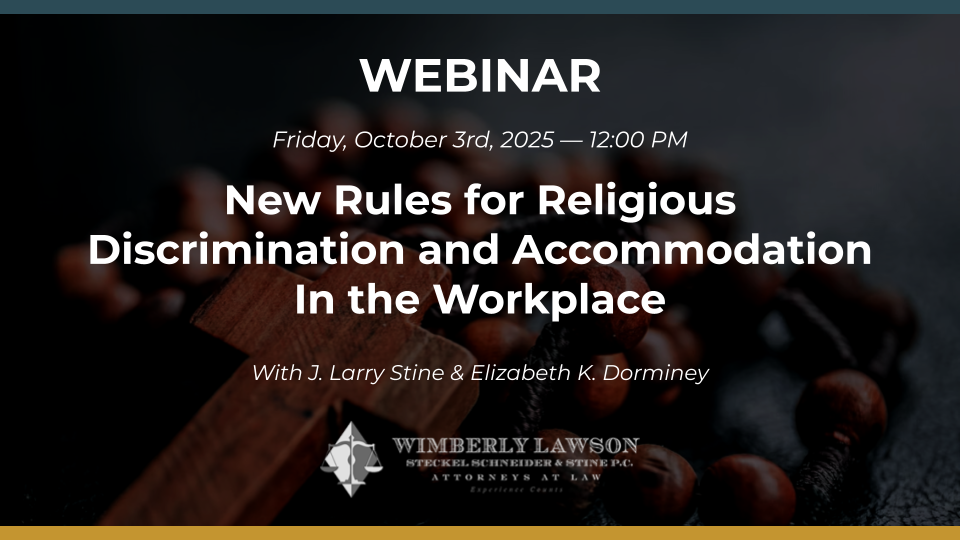An Uber Example of How NOT to Handle a Complaint of Sexual Harassment
Last week, Susan Fowler, a former Uber software engineer, published a blog post alleging she had been sexually harassed during her year working at the company. One of her allegations was that when she contacted human resources, she was told that the offender was a "high performer" and they did not feel "comfortable punishing him for what was probably just an innocent mistake on his part," Fowler said.
That was the wrong response. Whether an employee accused of sexual harassment is a "high performer" is irrelevant to the employer's duty to investigate the complaint and take remedial action. While an employer's past work history and performance can be considered during the investigation, they cannot be used as an excuse for the company to refrain from punishing him or her for harassing conduct.
And that was not the only mistake that Uber made in responding to Ms. Fowler's complaint. While trying to decide whether to stay on the project with the manager she had reported, Fowler wrote that one HR representative told her "it wouldn't be retaliation if I received a negative review later [from the manager she reported] because I had been 'given an option'" of leaving her team.
Wrong again. A company cannot retaliate against an employee who complains about harassment. That means the manager who is the subject of the complaint cannot give the complainant a bad review because she complained, regardless of whether the complainant was given the option of working elsewhere. If a complainant continues to work under the supervision of a manager or supervisor who was the subject of a complaint of sexual harassment, the best practice is to have a neutral third person—a higher level manager or human resource official—review any performance reviews or discipline issued by that manager or supervisor to ensure that it is not motivated by retaliation.
In response to these allegations by Ms. Fowler, Uber has been roundly criticized for its culture and apparent failure to take workplace harassment seriously. Uber CEO Travis Kalanick held a meeting with employees on February 21 and apologized for a lack of diversity in the company's workforce and for not properly responding to employee complaints. Kalanick also announced in an email to employees February 20 that former U.S. Attorney General Eric Holder will be working with Uber to lead an investigation into Fowler's allegations.
Practice Tip: While implementing a Policy Against Harassment is one important tool in preventing harassment in the workplace, that policy is meaningless if the company fails to hold employees accountable for violations of the policy.
Wimberly Lawson can review your company's policy against harassment and conduct supervisory and employee training on harassment in the workplace. Please call us at (404) 365-0900 to discuss your needs.

Kathleen J. Jennings is a former principal in the Atlanta office of Wimberly, Lawson, Steckel, Schneider, & Stine, P.C. She defends employers in employment matters, such as sexual harassment, discrimination, Wage and Hour, OSHA, restrictive covenants, and other employment litigation and provides training and counseling to employers in employment matters.
Related Content
Get Email Updates
Recent Content

Trump Nominates Appointments to NLRB and EEOC but Policy Changes Likely to Be Delayed

DOL Launches Self-Audit Programs Designed to Help Employers Improve Compliance

DOL Must Release EEO-1 Reports to the Public under Open Records Laws

Current Advice on Active-Shooter Situations

New Policy for Federal Workers and Religious Expressions

